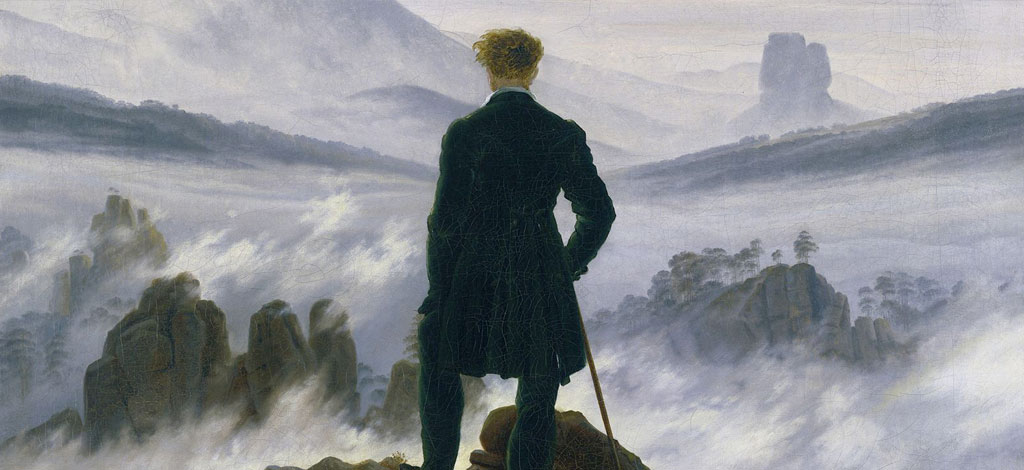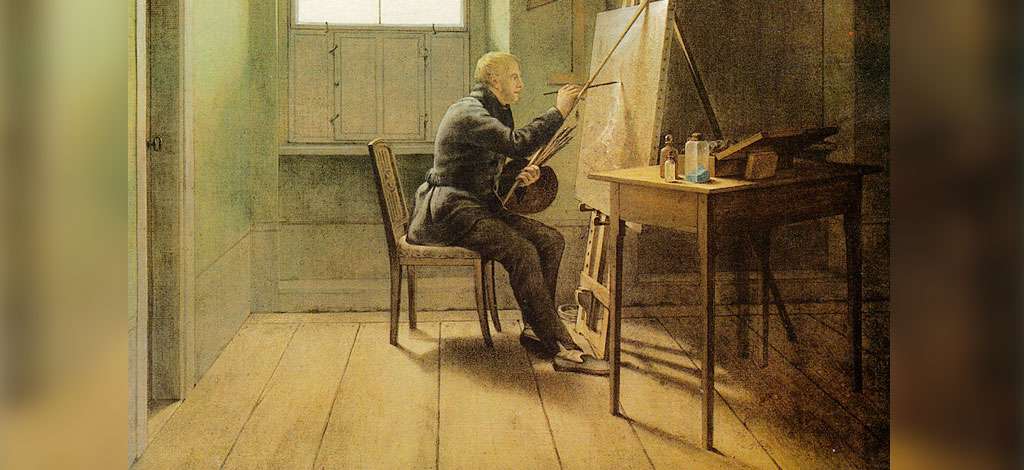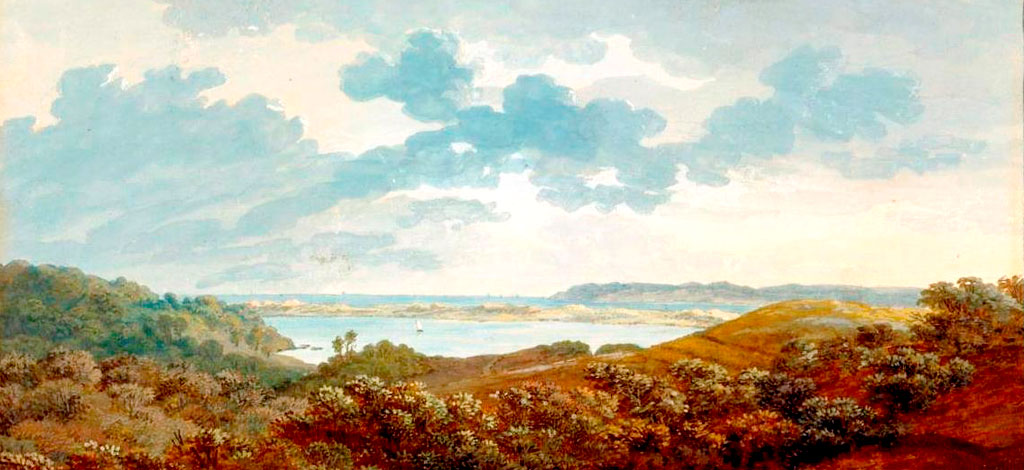PORTFOLIO
Portrait
Caspar David Friedrich
“A painter should not simply paint what he sees in front of him, but also what he sees within himself.” (Caspar David Friedrich)
Caspar David Friedrich was a one-of-a-kind artist. A wanderer between different worlds, between past and present. His pictures testify to emotions that are familiar to every one of us: yearning, loneliness, abandonment. The works of this artist are permeated by melancholy – a melancholy he used to cloak himself in order to render his sense of solitude, his knowledge of death, less unendurable. Friedrich discovered this sensibility within himself. The early Romantics believe that a painter should not simply paint what he saw in front of him, but instead what he perceived within himself. Friedrich followed this principle unsparingly, putting it into practice with great consistency. As a result, he succeeded in capturing a universal experience on canvas: the sheer inescapability of the knowledge that we enter and leave this world alone. It is this that makes Caspar David Friedrich’s works so timeless. It seems extraordinary and fascinating that even in the 21st century, a historically contingent painter like Caspar David Friedrich should continue to evoke such powerful responses, and that so many people, generation after generation, from various cultures, of differing ages and origins, should continue to identify so strongly with his art. But what exactly accounts for this timelessness? What is the source of his potency? What did his personal history, his excursions into the natural world, his inner life contribute to the genesis of these masterworks? And what significance do Caspar David Friedrich’s pictures have for us today? In a series of interlocking sequences, Caspar David Friedrich – Wanderer Between Worlds uses contemporary art to trace the influence of Caspar David Friedrich on the here and now, while also focusing on biographical aspects and offering psychologically oriented readings of his depictions of nature. Isolation and loneliness are the central emotions of his oeuvre – small wonder his works seem so contemporary appear in our increasingly disconnected society. This film investigates the phenomenon of Friedrich’s timelessness, exploring the political, psychological, and religio-spiritual dimension of his works, at the same time asking what his art reveals about the past, about the present, and above all about what it means to be human.
Buch / Regie
Nicola Graef, Frauke Schlieckau
Produktion
2020, ZDF/arte, eine Lona•media Produktion
52 min.
BACK TO PORTFOLIO

